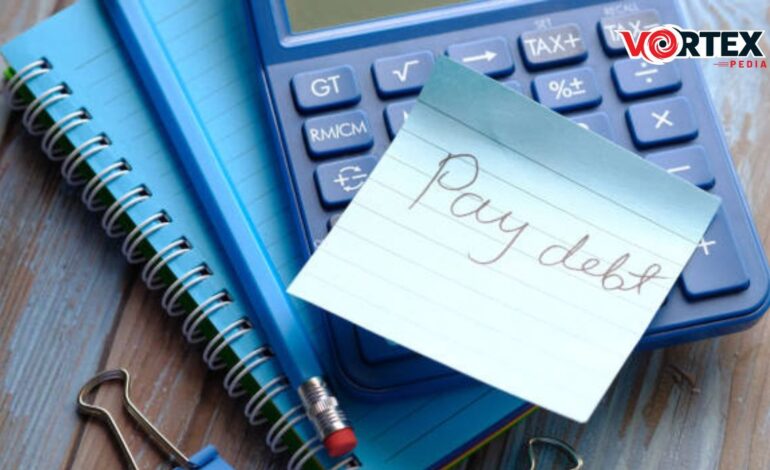
How to Get Out of Debt Trap – 5 Smart Ways?
Having lots of debt weighing you down feels very stressful. Money worries cause anxiety and strain. But smart plans can help escape the debt trap.
Constant calls from creditors demanding payment are unpleasant. High interest piles on more debt each month, too. This money drain makes it hard to afford basics like rent and groceries. Debt overload is overwhelming!
However, be motivated. There are options and things we can do. Steps exist to regain control bit by bit. Tactics like loan consolidation or negotiating rates offer hope. Most importantly, community and family support lifts our feelings. Together, we gain strength.
Create a Budget
First of all, one must take time and figure out how much money you are likely to earn and how efficiently you will use it. In the previous section on establishing your financial situation, indicate all sources of income you receive monthly. Then put on paper all the expenses you make day by day including the petty expenses also. Staring at bills, bank statements, and receipts is necessary to acquire all the details.
Second, one must examine the different ways to reduce expenses and possibly save some money. Some examples:
- Cut out unnecessary expenses such as magazine subscriptions or Netflix/Hulu/etc. if you do not watch often.
- consumer spending including eating out or getting coffee will be done by preparing food at home
- Discover new ideas on how to have fun and enjoy your time without having to spend a lot of cash.
- Once expenses are lower, you can put that extra money toward debt. Allocate certain amounts each month specifically for debt payments. Choose between which debts to priorities; some people may prefer to go with the smallest balance payments.
When you start paying off one of your debts, carry forward that payment amount to subsequent debts. This snowball approach can reduce debt very quickly. It feels so good to get rid of payments!
Consolidate Your Debts
Have many debts with different payments and interest rates? You can combine them! It describes a process where more than one debt is paid off with the help of a new loan.
This means you get another loan to clear all the other loans that you have been trying to manage. It seems that the new loan would have only one interest rate and one monthly instalment payment.
People with low credit can get no guarantor loans for bad credit people in Ireland. These let you consolidate when others say no. Perfect for tough money situations. Such loans help get control over unmanageable debt without a cosigner.
The new consolidation loan usually has a lower interest rate than other debts. Lower interest means you pay back less over time. You save money!
Instead of making many payments each month, you make just one bigger payment. Having one due date makes it harder to miss payments and get fees.
Other Benefits:
- Reduces stress from juggling multiple debts and due dates
- Protects your credit score by avoiding missed payments
- Provides a clear payoff plan to become debt-free
Consolidating is not for everyone, but it can help many people simplify debt. One lower payment is more manageable than many high-interest debts.
Negotiate with Creditors
Are your debt payments too high? You may be able to negotiate better terms with creditors. It’s worth asking for a lower interest rate or payment plan. First, you need to call or write to your creditors. These are lenders you owe money to, such as credit card companies or banks.
Tell creditors you are struggling to make full payments on time. But you want to pay off the debt. Be honest about money troubles. Ask if they can lower your interest rate or make payments smaller. You can request an extended number of months to pay it all back over more time.
Creditors may agree if:
- You show willingness to pay something each month steadily
- You describe hardship like job loss or health issues causing money problems
- They believe you will default completely without help
Offering a lump sum payment right away can help get creditors’ attention. Even a small amount shows you are serious about paying off debt.
Other tips:
- Get agreements in writing before sending any payments
- Explain how revised terms will allow full repayment
- Check your credit report for any errors to get removed
Increase Your Income
Are you working hard but still struggling with debt? You may need more income. Side jobs and selling stuff can give you extra cash to pay off debt faster.
Take a Side Gig
Look for part-time work you can do besides your main job. Driving for rides or food delivery are flexible options.
- Tutoring students after school or on weekends
- Running online sales like selling crafts or used items
- Freelance work like writing, coding, or virtual assistant tasks
Put in extra hours when you can. The money earned goes straight toward debt payments.
Sell Your Stuff
Look around your home for items just taking up space. Clothes, electronics, tools, and furniture can all be sold. You can:
- Have a garage sale or yard sale
- Use apps to sell locally
- List items online to ship
The money you make is bonus debt-busting cash! Selling unused stuff creates income without extra work time.
Extra debt payments make bigger dents in what you owe each month. You become debt-free sooner with consistent added income! It’s hard work but very rewarding.
Seek Professional Help
Is debt too overwhelming to tackle alone? Consider getting help from experts. Financial advisors and credit counsellors have tools to guide you out of debt.
Get Advice
A financial advisor looks at your full money situation objectively. They help create plans to pay off debt efficiently while saving, too. Their expertise navigates complex money issues.
Debt Management Plans
Credit counsellors can set up debt management plans. This combines multiple debts into one new payment. The counsellors negotiate lower interest rates, too. If you have poor credit, then bad credit loans in Ireland also make debt consolidation possible. Such loans give borrowers another chance when creditors refuse to negotiate. They provide an option to reorganize unmanageable debt on your own terms.
Bankruptcy Option
For extremely severe debt crises, bankruptcy may be the last resort. This legally erases certain debts you cannot pay. But it damages credit for a long time. Bankruptcy lingers on reports for 7-10 years!
Conclusion
Yes, it takes hard work and sacrifice. But this smart approach really works! Following these steps consistently allows you to chip away at debt. Make a budget listing income and expenses. Cut unnecessary costs.
Use that extra money for debt payments. Priorities paying high-interest debts first to save money. Just stay disciplined and patient. Before long, that debt burden will be gone for good! I hope this blog finds you well. If you want more authentic blogs, please visit the homepage and keep reading!








